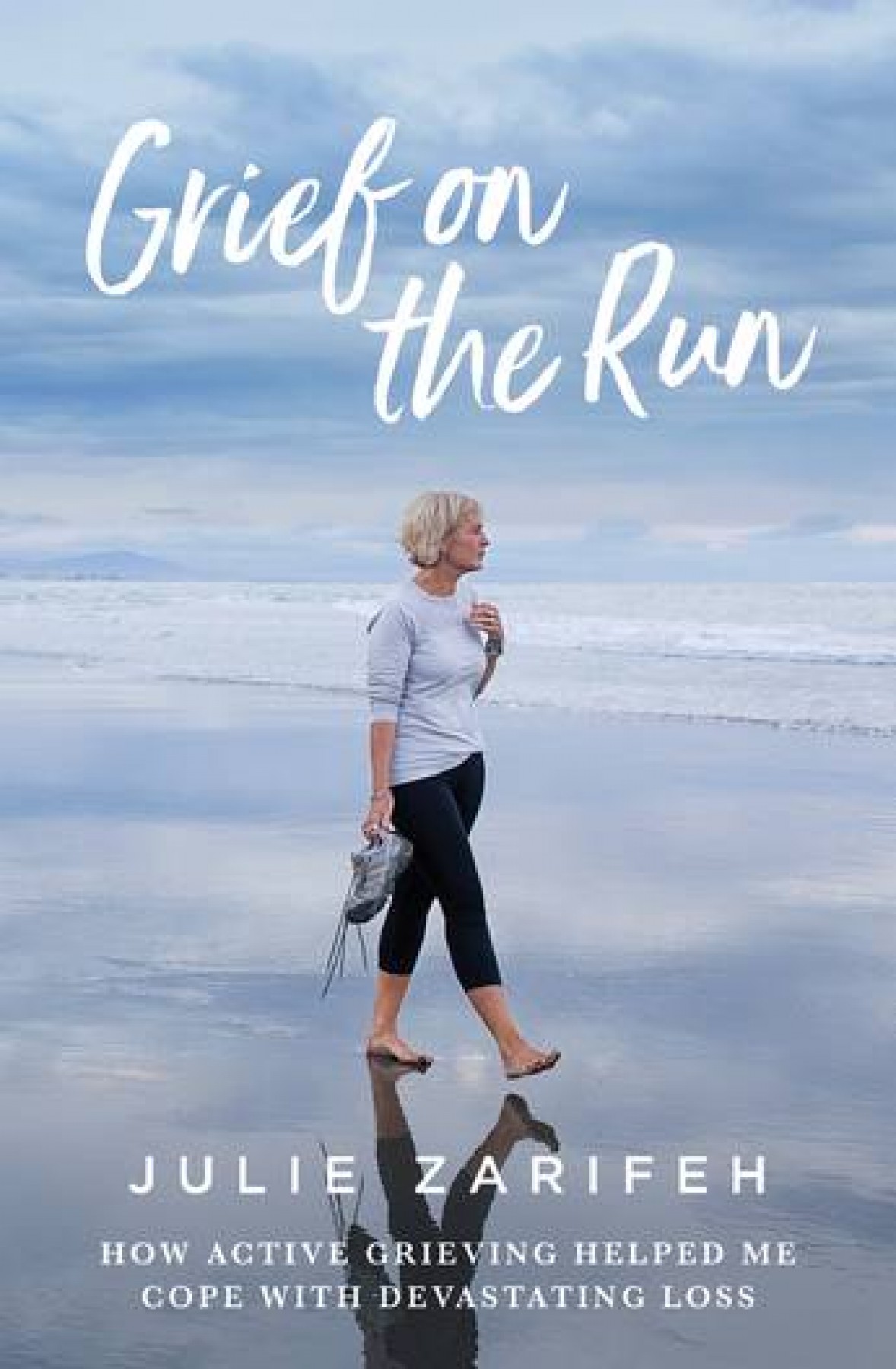I welcome writing on grief from Aotearoa. It’s refreshing to read about local experiences, and author Julie Zarifeh is a natural communicator. Sitting down to read her book is like listening to a friend, as she opens up and shares her story.
The Zarifeh family were on the go, busy with family, friends, work, travel and sport. Their passion was spending time in nature and being active. It came as a shock when Julie’s husband Paul was diagnosed with terminal cancer.
As Julie is a psychologist with an interest in resilience research and positive psychology, she and her family decided to keep doing the things they loved. This would be their way of coping with the pain of loss. As the family organiser, planning helped Julie prepare. What she didn’t expect was to lose her son Sam in a rafting accident 16 days after Paul’s death. Around this time, she also lost both her parents.
Broken-hearted and in shock, Julie hit the ground running. She spent New Year’s in Sydney, walked the Camino Trail and took part in the film ‘Camino Skies’, fundraised for charity by cycling Sri Lanka and running the New York Marathon, island-hopped in Greece, toured different countries, studied positive psychology in Melbourne, hiked the Tour de Mont Blanc and went to live on the Italian Coast while finishing her book.
It’s not quite ‘eat, pray, love’… More like ‘step, cry, step a whole lot more’.
Looking back, Julie says she doesn’t know where she found the energy. She acknowledges her privilege, of being lucky to have the time, finances and support of her workplace to pursue active grieving. Personal connection, giving, choosing what to focus on, continuing to learn, and physical activity became her key supports, and they align with the pillars of the Five Ways to Wellbeing Framework.
Activity also provided distraction. I found this interesting, as the idea of ‘too much’ distraction can sometimes be frowned on in grief theory. What’s ‘too much’ and who defines it? Julie found it helpful to be busy and as positively focused as possible. She uses a simple question from fellow psychologists Lucy Hone and Karen Reivich to help her make choices: ‘Is this helping me or harming me?’
The good news is we don’t need to travel or rely on external resources to actively grieve. We can use our internal resources, make our own choices, and choose how we respond when things go wrong. We can look after our own wellbeing and resilience and ‘do’ grief our own way.
Reviewed by Virginia Brooks, Community Engagement & Health Promotion Officer, MHF

